Father weeps as court told further treatment for seriously ill Alfie is ‘futile’
The 20-month-old is in a ‘semi-vegetative state’ and has a degenerative neurological condition.

The father of a seriously ill 20-month-old boy broke down in tears as a court was told that further hospital treatment is “futile”.
Tom Evans covered his face and howled in anguish at the hearing to decide if life support should be withdrawn from his son, Alfie.
The 20-year-old was comforted by his parents and sisters and there was a short adjournment before the hearing re-commenced at the High Court in Liverpool.
Lawyers acting for Alder Hey Children’s Hospital in Liverpool argue that further treatment for Alfie is unkind and inhumane.
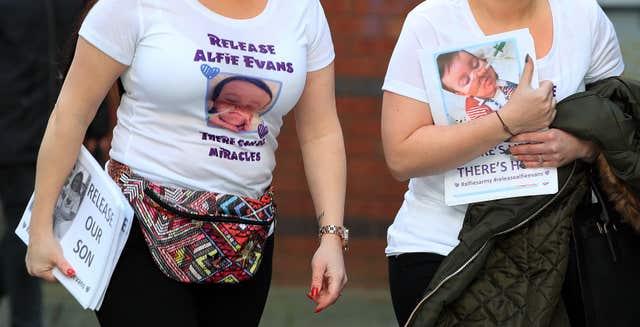
Despite mediation between the parents and hospital specialists caring for Alfie, his parents, Mr Evans and Kate James, want him to undergo further treatment and operations for his condition.
They believe their son responds to them – but the court heard that any movements by the child are spontaneous seizures as a result of touching.
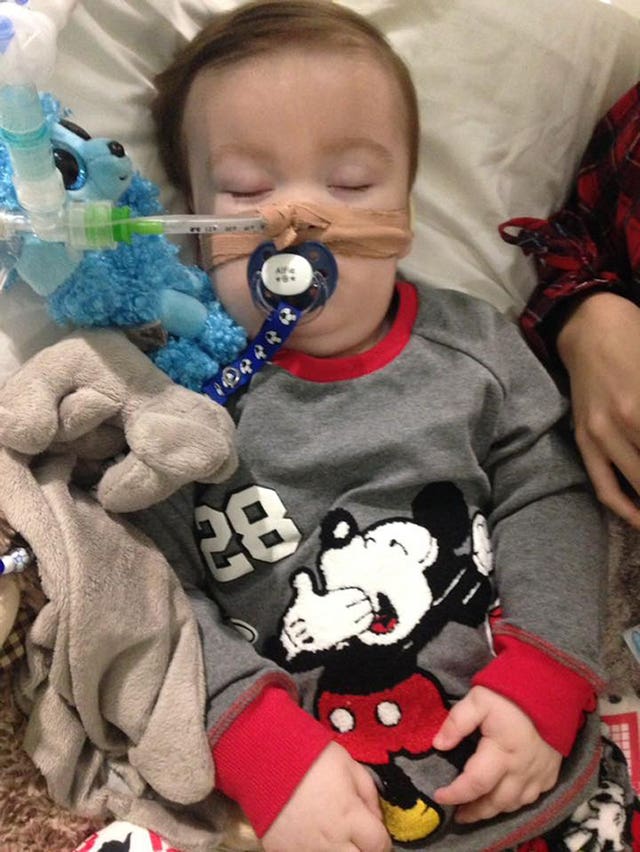
At this point, Mr Evans, sitting alongside the lawyer, broke down, sobbing into his hands before a break to proceedings was called by Mr Justice Anthony Hayden, hearing the case.
Mr Justice Hayden, who told the court he himself had had the “privilege” of visiting Alfie in hospital, said: “Everybody in this court shares the same objectives, everybody wants the best for Alfie.”
Mr Mylonas, outlining the case for the hospital, said scans of Alfie had shown “catastrophic degradation of his brain tissue” which was getting worse.
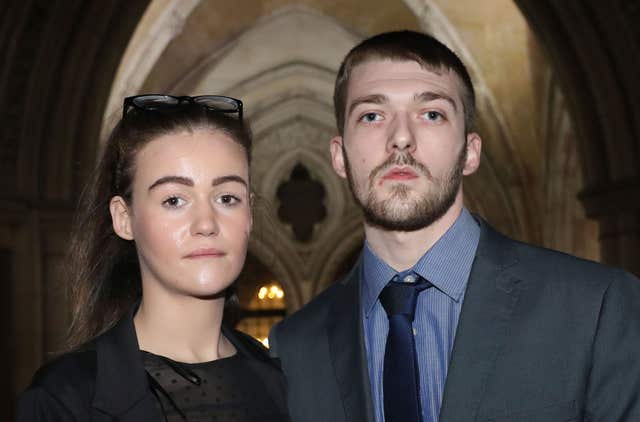
He said that, at the request of the parents, three medical experts from the Vatican-linked Bambino Gesu Paediatric Hospital in Rome had visited Alfie in Alder Hey.
Unfortunately they had reached the same conclusions in terms of the “complete futility” of trying to find a cure or alleviating his seizures and they could not provide any other treatment.
Mr Justice Hayden said the parents, who have changed their lawyers seven times, are trying to “leave no stone unturned” and explore every possible avenue.
He added: “In simple terms, they may have had enough solicitors to put a football team together but they have been able to get to some of the best experts in the world. They have won many battles.
“Who wouldn’t in their situation?”
“If they challenge the doctors, who on earth can blame them?”
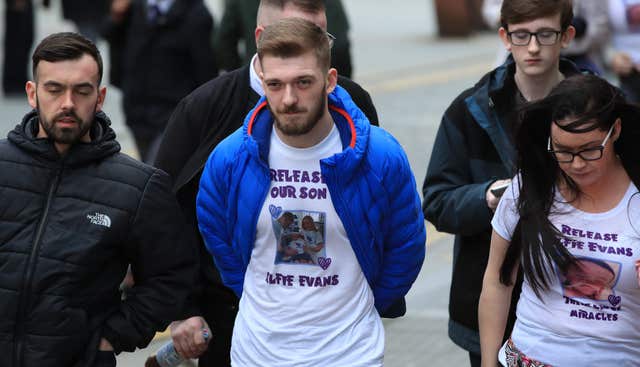
Medical experts are unable to say how aware Alfie is of his surroundings and that if he can feel the “soothing touch of a hand” he must also be able to feel the “sharp pin prick” as he suffers pain during ongoing treatment.
Dr Niklas Haas, a German expert whose medical report was read in court, said Alfie suffered from a still unknown, ultimately fatal disorder, adding: “Maybe the disease will ultimately be named after him.”
The Italian experts had suggested operations, a tracheotomy and a gastronomy, to help Alfie breathe and feed and keep him alive for an “undefined period”.
But Dr Martin Samuels, an expert in the ventilation of children, believed such operations were “inappropriate”.
Dr Samuels said: “I think we are all agreed from the medical perspective that life expectancy is limited.
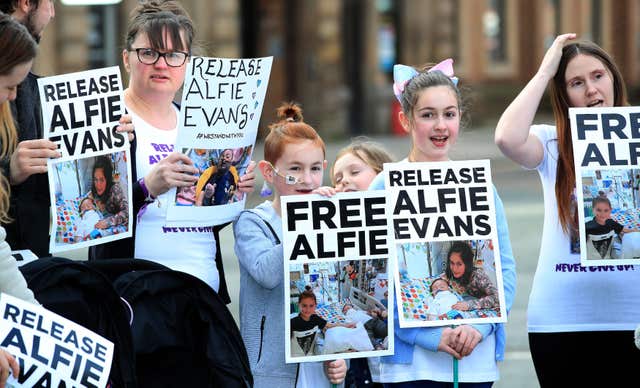
“That view is also supported by the fact that I don’t think anyone can be certain exactly what Alfie is feeling and whether or not he maybe feeling pain or discomfort.
“I think the provision of continuing intensive care to sustain life when they may be suffering is not one that, as medical professionals, most would consider appropriate.”
Around a dozen friends and members of Alfie’s family, some wearing T-shirts bearing his picture and the words “Release Alfie Evans”, shook their heads and muttered as the witness gave his evidence.
Mr Justice Hayden responded: “He’s saved more children’s lives than you can imagine. In this court he will be given respect.”
Professor Helen Cross told the court that EEG results, which measures electrical activity in the brain, showed Alfie only displayed electrical brain activity when he was having seizures – there was no other brain activity.
She said Alfie’s scans were “highly abnormal” with an estimated loss of 70% of his brain nerve fibre.
The destruction of his brain was not reversible and the exact diagnosis of what is wrong with the child cannot be given, she said.
Asked about a possible tracheotomy operation to help him to breathe, she replied: “Prolonging his life unnecessarily is not a way to go considering his brain is being progressively destroyed and there is no prospect of recovery.
“We are putting the child through procedures for no benefit to the underlying condition. What are the long term goals?
“What are the risks? What are we trying to achieve?
“Why put them through further procedures when he has a progressive neurological disorder that is going to be fatal?”
The hearing will continue with more expert evidence on Friday.





